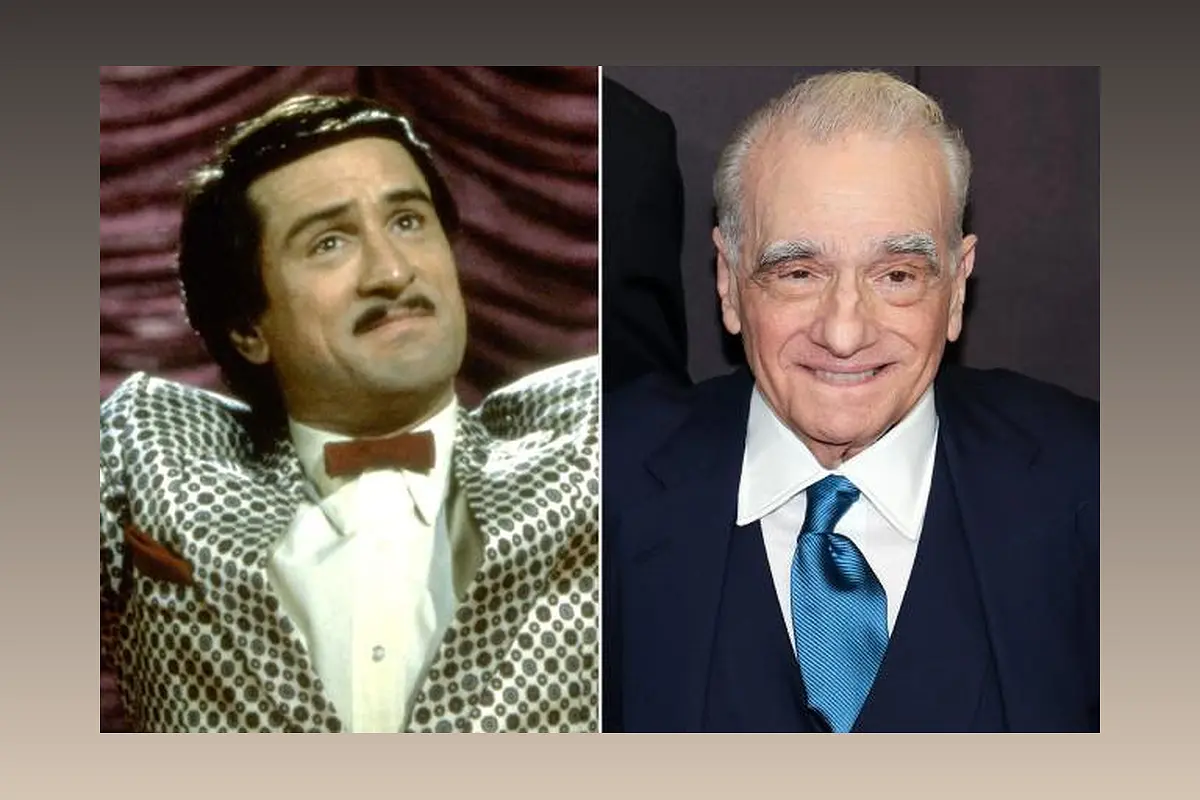In a candid revelation, acclaimed director Martin Scorsese reflects on the critical reception of his film, The King of Comedy. Despite being initially dubbed the 'flop of the year,' this underrated gem has since gained a dedicated following. Join me as we delve into the story behind this slept-on classic and explore how it has earned its place as a beloved film in Scorsese's illustrious career.
The Initial Reception: From Flop to Cult Classic
Explore the initial critical reception of The King of Comedy and how it transformed from a box office disappointment to a cult classic.
Upon its release in 1983, The King of Comedy faced harsh criticism and was labeled as the 'flop of the year' by Entertainment Tonight. The dark and unsettling story of Rupert Pupkin, played brilliantly by Robert De Niro, was misunderstood by audiences at the time. However, as time went on, the film started to gain recognition for its bold and daring portrayal of obsession and fame.
Despite its initial commercial failure, The King of Comedy gradually found its audience and began to be appreciated for its satirical commentary on celebrity culture and the lengths people will go to achieve fame. Let's dive deeper into the reasons behind its initial reception and subsequent rise to cult classic status.
The Unsettling Brilliance of Robert De Niro
Discover the captivating performance of Robert De Niro as Rupert Pupkin and how his portrayal adds depth to The King of Comedy.
One of the standout aspects of The King of Comedy is Robert De Niro's mesmerizing performance as Rupert Pupkin. De Niro brings a perfect balance of charm, delusion, and desperation to the character, making him simultaneously sympathetic and unsettling.
Through his nuanced portrayal, De Niro captures the essence of Pupkin's obsession with fame and his relentless pursuit of success. His ability to seamlessly transition between comedy and darkness adds layers of complexity to the character, elevating the film to another level.
With his magnetic presence on screen, De Niro delivers a performance that is both captivating and disturbing, leaving a lasting impact on audiences.
Scorsese's Vision: Satire and Social Commentary
Explore Martin Scorsese's directorial choices in The King of Comedy and how they contribute to its satirical and thought-provoking nature.
Martin Scorsese's directorial brilliance shines through in The King of Comedy, as he masterfully blends elements of dark comedy, satire, and social commentary. Through his meticulous attention to detail and visual storytelling, Scorsese creates a world that reflects the obsession with fame and the consequences of pursuing it at any cost.
Scorsese's use of long takes and close-ups intensifies the uncomfortable atmosphere, allowing the audience to experience the unease and tension that permeate the film. His decision to cast real-life talk show host Jerry Lewis as the kidnapped celebrity victim adds an extra layer of authenticity to the story.
By delving into the dark side of celebrity culture, Scorsese prompts viewers to question the lengths they would go to achieve fame and the impact it has on society as a whole.
The Reevaluation: From Underrated Gem to Beloved Classic
Discover how The King of Comedy went from being overlooked to being recognized as a masterpiece in Martin Scorsese's filmography.
Over time, The King of Comedy has undergone a reevaluation and is now widely regarded as one of Martin Scorsese's most underrated films. Its dark humor, compelling performances, and thought-provoking themes have garnered a dedicated following and critical acclaim.
The film's exploration of obsession, fame, and the blurred lines between reality and fantasy resonates with audiences in today's social media-driven society. The King of Comedy's relevance and impact have only grown stronger with time, solidifying its place as a beloved classic in Scorsese's illustrious filmography.
Conclusion
The King of Comedy may have been initially overlooked and labeled as a flop, but it has since proven to be a hidden gem in Martin Scorsese's filmography. Through its dark humor, captivating performances, and thought-provoking themes, the film has gained a dedicated following and critical acclaim. It serves as a testament to the enduring power of Scorsese's storytelling and the impact of exploring the dark side of fame and obsession.
FQA
Why was The King of Comedy initially disliked by audiences?
The King of Comedy's dark and unsettling story, combined with its satirical commentary on celebrity culture, was misunderstood by audiences at the time. Its unconventional narrative and portrayal of obsession may have been too challenging for some viewers.
How did The King of Comedy gain its cult following?
Over time, The King of Comedy found its audience through word-of-mouth and critical reappraisal. Its bold and daring portrayal of fame and obsession resonated with viewers who appreciated its dark humor and thought-provoking themes.
What makes Robert De Niro's performance in The King of Comedy stand out?
Robert De Niro's portrayal of Rupert Pupkin is a masterclass in acting. He brings a perfect balance of charm, delusion, and desperation to the character, making him simultaneously sympathetic and unsettling. De Niro's ability to seamlessly transition between comedy and darkness adds layers of complexity to the film.
How does The King of Comedy reflect today's society?
The King of Comedy's exploration of obsession, fame, and the blurred lines between reality and fantasy remains relevant in today's social media-driven society. It prompts viewers to question the lengths they would go to achieve fame and the impact it has on individuals and society as a whole.

